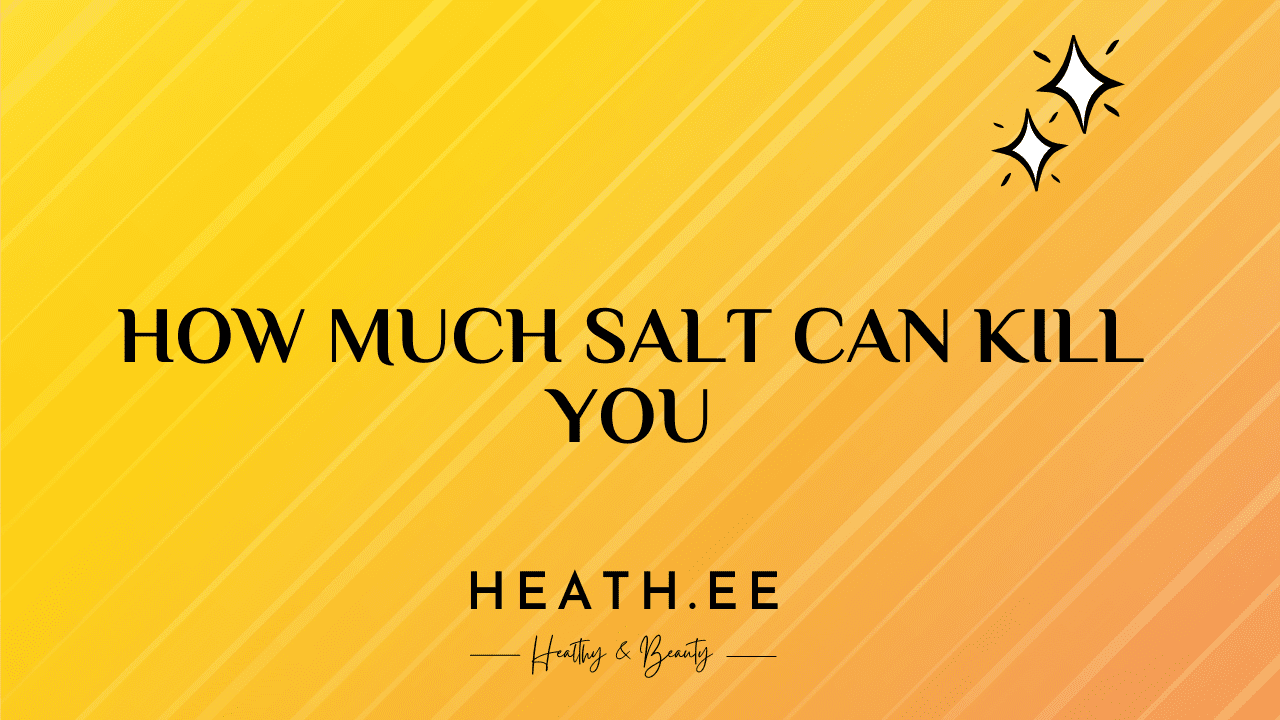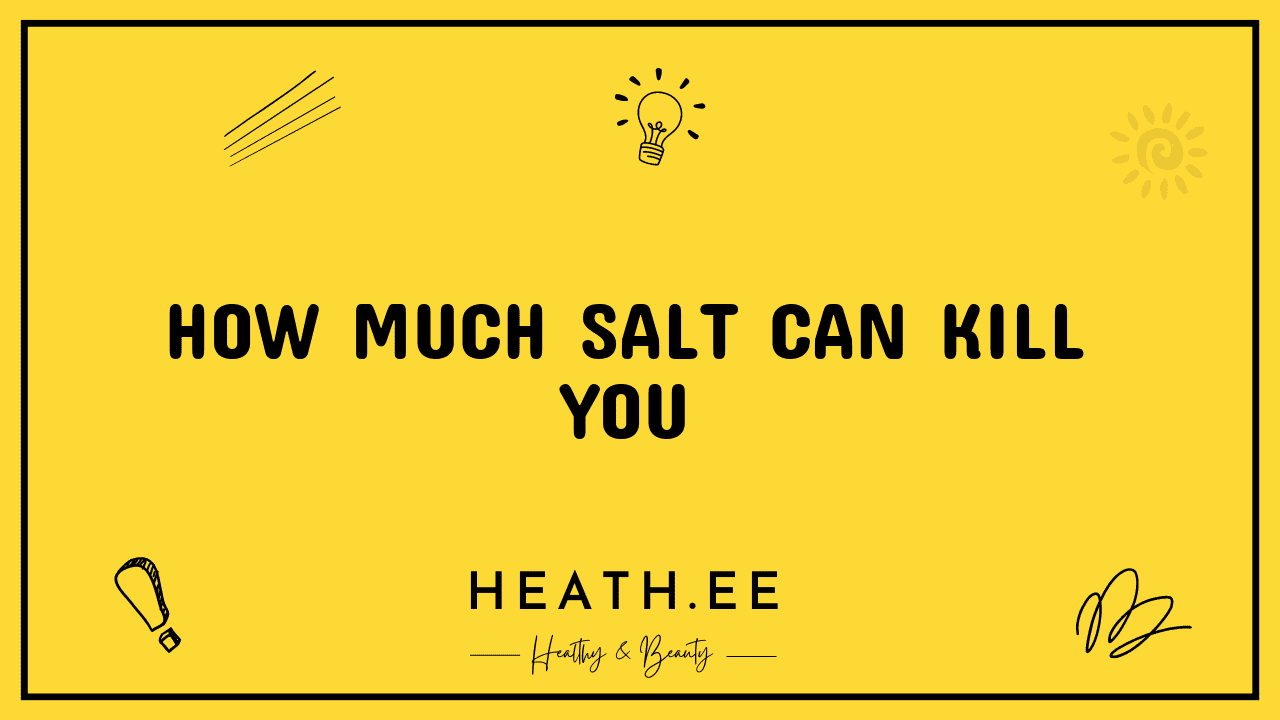Salt is an essential part of our diets, but it’s important to know how much is too much. In this blog post, we’ll explore how much salt can kill you, and what happens when you consume too much salt.
What is Salt?
Salt is a mineral composed of sodium and chloride. It’s a key ingredient in many of our favorite dishes, and it helps to enhance the flavor of food. Salt is also used as a preservative, and it’s often added to processed foods.

How Much Salt is Too Much?
The recommended daily intake of salt is 2,300 milligrams, or 1 teaspoon. Consuming more than this amount can lead to serious health problems such as high blood pressure, stroke, and heart disease. In extreme cases, consuming too much salt can even be fatal.
What Happens When You Consume Too Much Salt?
When you consume too much salt, your body retains water to try and balance out the levels of salt in your system. This can lead to an increase in blood volume, which can put a strain on your heart and blood vessels. This can lead to high blood pressure, which can increase your risk of stroke, heart attack, and other health problems.

How Much Salt Can Kill You?
It’s difficult to determine how much salt can kill you, as it depends on many factors such as age, health, and pre-existing conditions. Consuming large amounts of salt can lead to a condition called hypernatremia, which is a dangerous electrolyte imbalance in the body. The symptoms of hypernatremia include confusion, seizures, coma, and in extreme cases, death.
What Are the Symptoms of Hypernatremia?
The symptoms of hypernatremia include confusion, fatigue, muscle weakness, and seizures. If untreated, the condition can progress to coma and death.
How Can I Avoid Consuming Too Much Salt?
The best way to avoid consuming too much salt is to read food labels carefully and choose foods with lower sodium content. You should also limit your intake of processed foods and fast food, as these tend to be high in salt. Additionally, you can replace salt with other seasonings such as herbs and spices to add flavor to your meals.
What Are the Benefits of Eating Less Salt?
Eating less salt can help to reduce your risk of high blood pressure, stroke, and heart disease. It can also help to reduce your risk of kidney stones, as high levels of salt can increase the risk of developing them. Additionally, eating less salt can help to reduce water retention and bloating, as it helps to balance your body’s fluid levels.
How Can I Monitor My Salt Intake?
The best way to monitor your salt intake is to read food labels carefully and choose foods with lower sodium content. Additionally, you can use a sodium tracker app to help you keep track of your daily salt intake.
In conclusion, it’s important to be aware of how much salt you’re consuming. The recommended daily intake of salt is 2,300 milligrams, or 1 teaspoon. Consuming more than this amount can lead to serious health problems such as high blood pressure, stroke, and heart disease. In extreme cases, consuming too much salt can even be fatal. Therefore, it’s important to monitor your salt intake and choose foods with lower sodium content.



